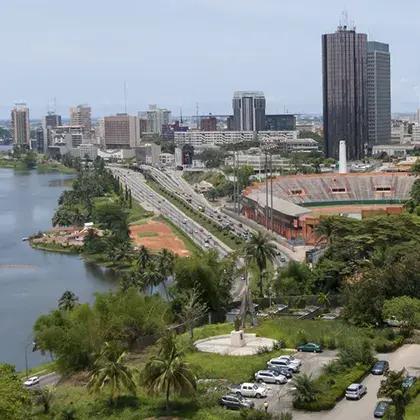News
Africa Cup of Nations: China deploys its "stadium diplomacy"
Image

On the pitch, it’s not yet clear who will win the Africa Cup of Nations. But off it, China has already won the game. To extend its influence on the continent, Beijing is offering stadiums to countries such as Ivory Coast, which is hosting the competition this year. A monumental display of diplomacy.
When the Africa Cup of Nations begins on January 13, the opening match between Guinea Bissau and the hosts, Ivory Coast, will be played at the Alassane Ouattara Stadium in Abidjan. The state-of-the-art venue is one of six stadiums being used during the football tournament.
At a ceremony to mark the beginning of its construction in 2016, the former prime minister of Ivory Coast, Daniel Kablan Duncan, was accompanied by several Chinese embassy officials based in the country.
Their presence was no surprise. After all, the stadium was designed by the Beijing Institute of Architectural Design and built by the Beijing Construction Engineering Group. Both of these are Chinese state entities.
China was heavily involved in building other tournament venues too. In San Pedro, the Laurent Pokou Stadium was built by the China Civil Engineering Construction Corporation (again, state owned). And the China National Building Material group served as general contractor on the Amadou Gon Coulibaly Stadium in Korhogo.
Stadiums all over Africa
All of this is part of a long-term policy of “stadium diplomacy” which China has been deploying across the continent. Linked to the belt and road initiative, which is intended to promote trade and foster interdependence between China and other nations, stadiums have frequently been gifted to African nations (or else paid for using relatively cheap loans).
For instance, when Gabon co-hosted (with Equatorial Guinea) the Cup of Nations in 2012, China was involved in building both of its stadiums. Five years later, when Gabon hosted the tournament again, China built another two.
Gabon now sends around 15% of its exports – mostly crude petroleum and manganese – to China. [...]


